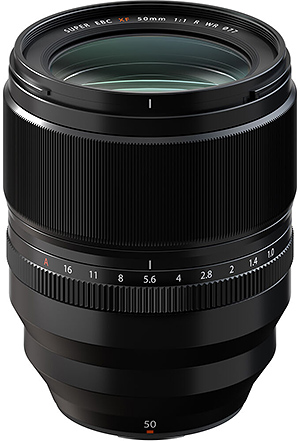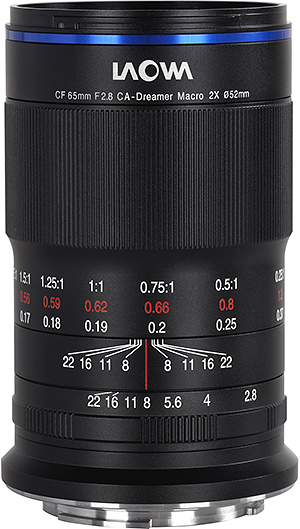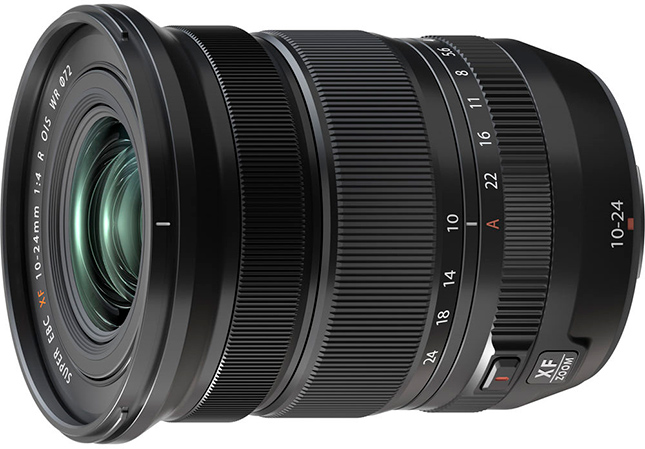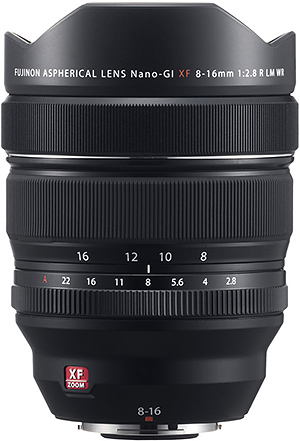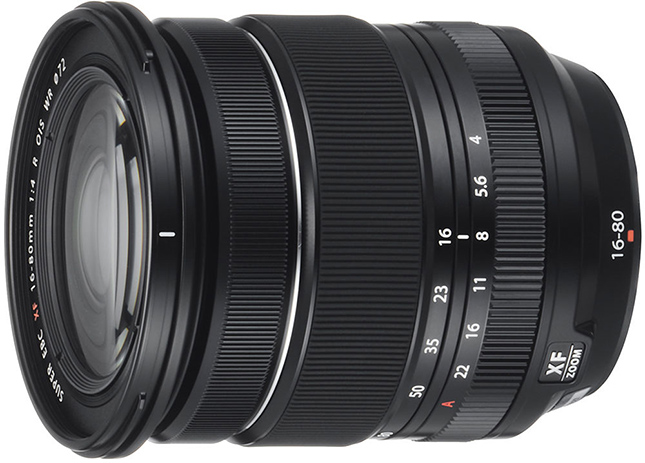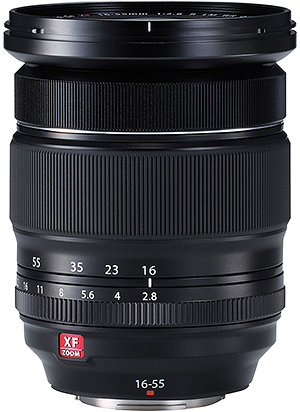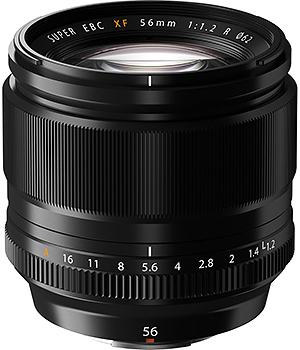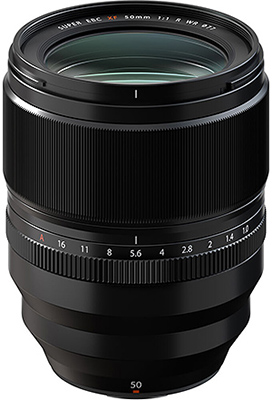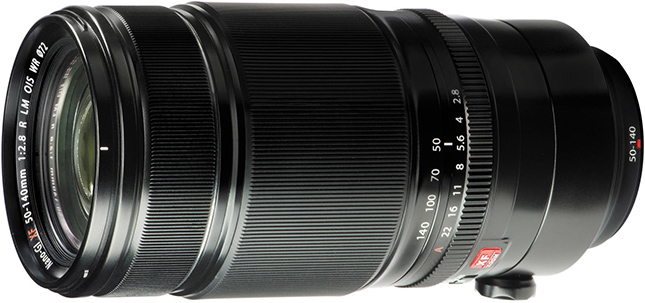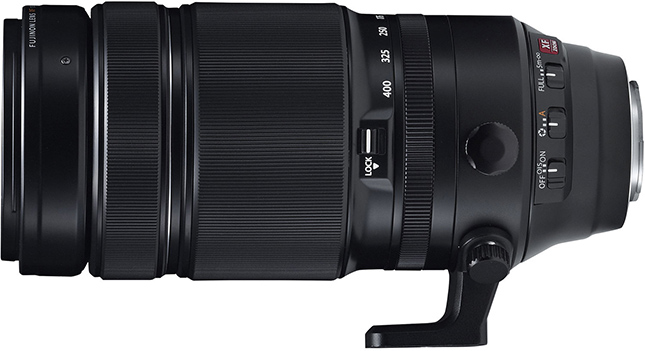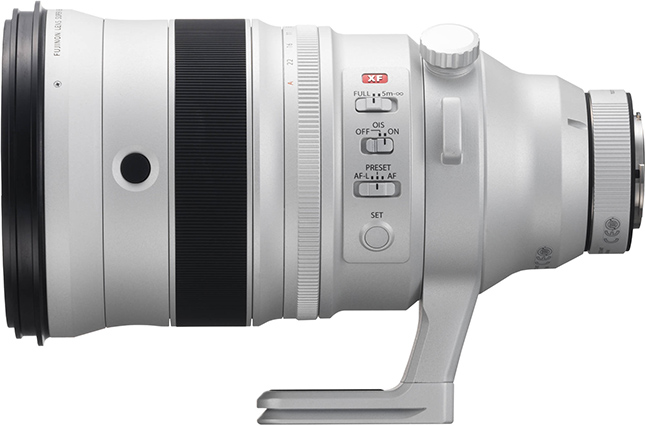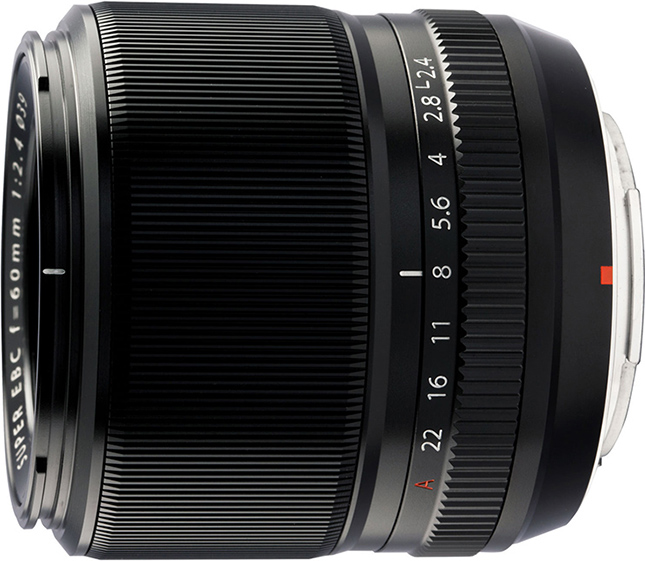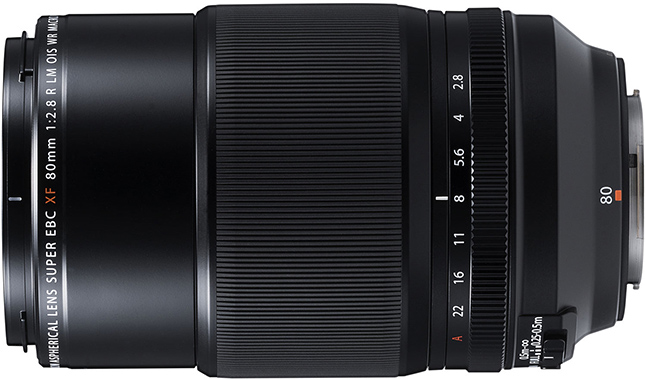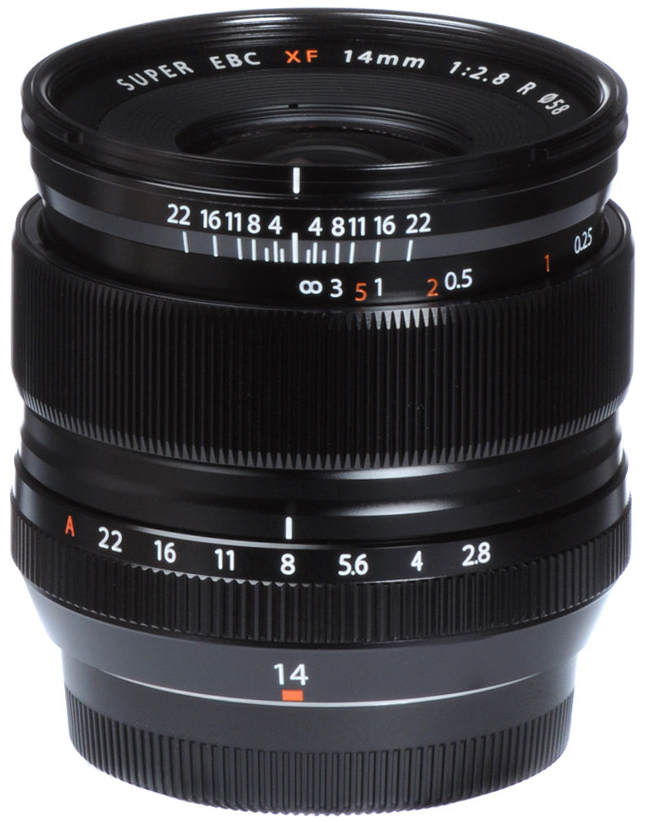The Best Lenses for Your Fujifilm X Series Mirrorless Camera
posted Friday, June 18, 2021 at 6:05 PM EST
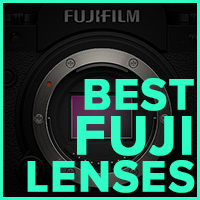
Fujifilm's largely APS-C-based X Series of digital cameras first appeared on the scene back in 2011 with the Fuji X100 camera, which was, surprisingly enough, a fixed-lens camera. However, in the years following, the X Series has grown to encompass a wide range of camera models, most of which are interchangeable lens mirrorless cameras. Combining stylish and retro-inspired designs with powerful performance and excellent image quality, Fuji's X Series nowadays is wide-ranging with a little something for nearly any type of photographer and at almost any budget level.
Much like other interchangeable lens camera systems, Fuji X Series cameras can often be purchased as body-only or as a kit with usually a single zoom lens. If you're picking up a new Fujifilm X Series camera body, you'll need to decide what type of lens to buy alongside your new camera or if the kit lens will fit your specific needs. Or, perhaps you're an existing Fujifilm owner with just a single kit lens setup. You might eventually want to either upgrade this lens as you advance in your photography skills or expand your camera kit with additional lenses to make your photo capabilities more versatile.
Whatever the reason, making a decision on what lens to buy can be a difficult task, with numerous lens options out there. Multiple versions. Different price points. Different zoom ranges and lens designs. With Fujifilm, in particular, there are now well over 30 lenses in the X Series lens lineup that run the gamut from ultra-wide zooms and bright prime lenses to macro lenses and long telephoto zooms...
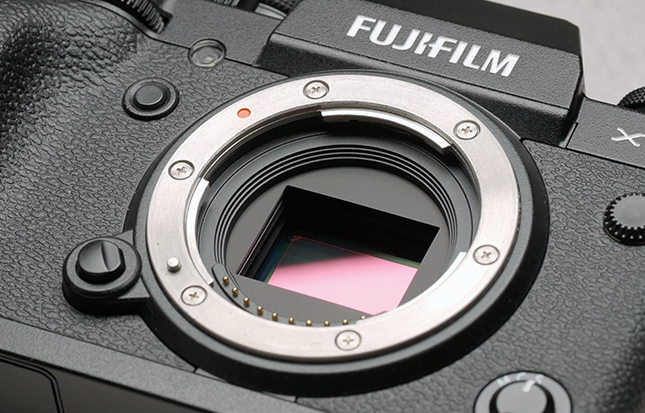
So, what lens should you buy for your Fujifilm camera?
Much like other camera and lens manufacturers, Fujifilm makes a wide variety of lenses at different quality levels and price points. The first thing to consider is what type of images are you looking to create? The other factor to consider is your budget. When looking for the "Best Lens," it might be tempting just pick the highest-priced one. Chances are that'll be a fantastic lens. Truth be told, an expensive lens is often a very good one, too. But, most of us out there, us here at IR included, must keep an eye on our budget. As such, we've tried to keep the price in mind when it comes to making lens recommendations in this guide.
For organization's sake, we've also broken down our lens recommendations below into separate categories depending on the type or style of photography.
Without further ado, if you're looking to upgrade the lens or lenses for your Fujifilm mirrorless camera, then read on!
Navigation - use the category links below to jump directly to the specific section:
- Best Fujifilm Lens for Landscape Photography
- Best Fujifilm Lens for Travel & Street Photography
- Best Fujifilm Lens for Portrait Photography
- Best Fujifilm Lens for Sports Photography
- Best Fujifilm Lens for Wildlife Photography
- Best Fujifilm Lens for Astrophotography
• • •
Best Fujifilm Lens for Landscape Photography
One of the key characteristics of a typical landscape lens is a wide-angle or ultra-wide-angle focal length. These types of lenses let you capture more of the scene, which makes them ideal for landscape photography. Imagine a dramatic mountain vista, a wide-open field or a massive waterfall: A wide-angle lens is a good choice for all of these shooting scenarios. Wide-angle lenses are also great for emphasizing a foreground subject. Shoot wide and get in close, and your subject will dominate the frame.
First Choice: Fuji XF 10-24mm f/4 R OIS WR
This ultra-wide-angle zoom lens provides a versatile 15-36mm-equivalent zoom range, making it an excellent option for landscape photography pursuits. Fujifilm updated their highly-regarded XF 10-24mm f/4 lens towards the end of 2020, adding improved optical image stabilization, a refreshed design with a labeled aperture ring, faster AF and, most importantly, rugged weather sealing to its construction.
Optically, the new version of this ultra-wide-angle lens is unchanged, which is a good thing, as the original was already excellent. As we found in our review of the original model, the lens is exceptionally sharp across its zoom range, even when used wide-open. Other issues, such as chromatic aberration and vignetting, are very minimal. Optically, it's a wonderful lens. The maximum f/4 aperture does make it more suitable for daylight shooting situations, but the on-board image stabilization (as well as IBIS in a handful of modern Fuji X series cameras) can help when the light levels drop -- not to mention, also being helpful for handheld video shooting, too.
All in all, the Fuji 10-24mm f/4 WR lens is an all-around solid choice for a landscape-centric lens. It's small, lightweight, built even better now, and is a top-notch performer when it comes to image quality.
Try It Before You Buy It? -- Rent this lens from Lensrentals
Upgrade Pick: Fuji XF 8-16mm f/2.8 R LM WR
For most landscape photography situations, you usually don't need a bright-aperture lens. You may be shooting from a tripod or capturing images with deep depths of field. That said, situations do arise where a brighter lens is helpful, especially for low-light shooting and astrophotography/night sky situations. Also, if you want a wider perspective than our 10-24mm recommendation -- and price isn't really a factor -- then the Fuji XF 8-16mm f/2.8 WR is a top-of-the-line landscape lens for your Fuji camera.
Offering a super-wide 12-24mm-eq. zoom range, the Fuji 8-16mm f/2.8 lens is capable of capturing dramatic, sweeping landscape photos as well as offering excellent performance in low-light and for night-sky photography thanks to its bright f/2.8 aperture. Optically, the lens is fantastic all around, even wide open, and the lens' suppression of comatic aberration indeed makes it a great choice for stars and other astrophotography subjects.
The Fuji 8-16mm is an absolutely fantastic landscape lens, if you have the budget -- and don't mind the heavier size and lack of screw-on filter threads.
Try It Before You Buy It? -- Rent this lens from Lensrentals
Best Fujifilm Lens for Travel & Street Photography
Picking a lens for travel and street photography can be a difficult task. For street photography, you might lean towards something small, lightweight and discreet, whereas for travel purposes, you'll likely do well with some zoom versatility. In both cases, though, you'll probably want to keep your Fuji camera kit as simple and lightweight as possible; in other words, a single-lens setup. Think: walking around on vacation, exploring a new city or going on a hike. Having a light but versatile camera setup is key.
First Choice: Fuji XF 16-80mm f/4 R OIS WR
Fujifilm makes a variety of versatile zoom lenses that all do well for the "travel & street" category, but one lens in particular that strikes an excellent balance of compact yet rugged design, sharp image quality and a reasonable price point is the XF 16-80mm f/4 R OIS WR lens. Offering an all-purpose zoom range of 24-122mm in 35mm-equivalence, the XF 16-80mm lens an excellent one-lens choice for a compact camera kit, whether you're photographing landscapes, street scenes, family vacation moments or impromptu portraits. The lens is weather-sealed, weighs just 440g (under one pound) and has a handy constant aperture that we prefer over variable-aperture lenses.
While we've not yet lab-tested this particular lens, we have used it alongside the X-T4 and found the image quality and overall performance to be excellent. The lens is very sharp across the zoom range, even wide open. Further, other user reviews are similarly positive, praising the lens's image quality, weather-sealing and the built-in optical image stabilization, which make the lens a good choice for the several Fujifilm cameras that lack in-body sensor-based stabilization systems.
More zoom range than a kit lens, a constant aperture design, weather-sealing, OIS and a $799 price point make this XF 16-80mm lens a all-around winner for a single-lens travel setup.
Try It Before You Buy It? -- Rent this lens from Lensrentals
Upgrade Pick: Fuji XF 16-55mm f/2.8 R LM WR
If price or weight are less of a concern, the Fuji XF 16-55mm f/2.8 R WR zoom is a fantastic, versatile lens. Offering a bit less zoom range than our top pick, but in exchange offering a brighter f/2.8 constant aperture, this high-end zoom is the preferred choice if you find yourself shooting in lower light situations more often or if you want better subject isolation and shallow depth of field potential. The image quality, as well, is top-notch, with the 16-55mm f/2.8 lens producing tack sharp images throughout the zoom range and even at f/2.8. As mentioned, the lens is heftier than our 16-80mm pick at about 655g (1.44 lbs.) and pricier too, with an MSRP of around $1200. But this lens is an absolutely stellar performer.
Try It Before You Buy It? -- Rent this lens from Lensrentals
Best Fujifilm Lens for Portrait Photography
When it comes to picking a lens for portraiture, you'll most likely want something with some telephoto reach. Wide-angle lenses, on the other hand, can distort and accentuate facial features in an unflattering way, whereas a longer standard-focal length or short telephoto lens will capture a more natural, pleasing representation of your subject. Traditionally, an 85mm prime lens has been a classic portrait go-to, offering an excellent focal length for natural-looking portraits and good subject isolation thanks to the wider aperture than what you typically find on a kit zoom lens. The wide aperture helps blur out the background of your shot and helps your subject stand out more.
First Choice: Fuji XF 50mm f/2 R WR
Once again, we are spoiled for choice when it comes to portrait-friendly lenses for X-mount. Fuji offers several models of fast short- to mid-telephoto prime lenses, but our top pick is an absolutely solid bang-for-your-buck lens, the XF 50mm f/2 W WR. Tiny and unassuming yet solidly built with full weather-sealing, this capable little 50mm (75mm eq.) prime is a wonderfully sharp lens that will have you capturing beautiful portraits without breaking the bank. The lens's f/2 aperture helps keep the size, weight and costs down, yet it's still bright enough for excellent low-light capabilities and great subject isolation with smooth bokeh.
In our review, the XF 50mm f/2 was found to be tack-sharp even at f/2 with extremely low CA, distortion and vignetting. With a reasonable price of around $450 combined with excellent features and performance, it's no wonder we awarded this lens the "Best Value Prime" in our 2017 Lens of the Year Awards.
Try It Before You Buy It? -- Rent this lens from Lensrentals
Upgrade Pick: Fuji XF 56mm f/1.2 R
If your budget allows or if you really need a faster aperture lens, there are a handful of other higher-end portrait primes to pick from. In fact, it's quite difficult to pick just one here to call out "Upgrade Pick." If the $1000 market if your budgetary limit, one excellent option is the XF 56mm f/1.2 R. Offering a slightly longer ~85mm-equivalent focal length and a super-fast f/1.2 aperture, the 56mm prime is a supremely capable portrait prime. In our review, the lens tested surprisingly sharp at f/1.2, an uncommon feat for such a bright lens. Further CA, vignetting and distortion were all essentially a non-issue. Overall, the 56mm f/1.2 is a stunning optic.
Try It Before You Buy It? -- Rent this lens from Lensrentals
Upgrade Pick: Fuji XF 90mm f/2 R LM WR
Another option would be the XF 90mm f/2. This longer 135mm-equivalent prime is incredibly sharp, even at f/2. Like supremely tack-sharp. The longer focal length can help create a more flatteringly appearance for your portrait subjects, while also allowing for beautiful telephoto compression and subjection isolation. The longer focal length does make it a little less versatile for everyday photo needs than our 50mm or 56mm picks, but if portraits are your main concern, it's hard to wrong with this lens.
Try It Before You Buy It? -- Rent this lens from Lensrentals
Upgrade Pick: Fuji XF 50mm f/1.0 R WR
Now, normally, we would call it quits with two "Upgrade Picks" here, but we think we would be remiss not to call out the stunning XF 50mm f/1.0 lens. As you might imagine, this is a very uncommon lens -- an autofocusing f/1.0 prime. It's not super sharp wide open, though we don't expect it to get tack-sharp given the extremely shallow depth of field and overall dreaminess that f/1.0 lenses can create. (It's still pretty good in the center, but stopping down improves them greatly.) However, images, especially portraits, shot at f/1.0 with this lens have a unique character that's hard to overlook. You can capture some really interesting, dramatic images with super-thin depth of field and creamy bokeh. With a price of $1500, the Fuji XF 50mm f/1.0 is certainly not budget-friendly, but it's such a unique and impressive lens that we gave it an award in our 2020 Lens of the Year Awards.
Try It Before You Buy It? -- Rent this lens from Lensrentals
Best Fujifilm Lens for Sports Photography
For sports photography, you'll most likely want something telephoto, something with reach, to help bring the action up close. You'll most likely not be able to get right up next to the sidelines, so a longer telephoto lens will be critical to getting pleasing, action-packed sports photos. Now, depending on the particular sport you're photography, how much telephoto reach you'll need can vary dramatically, but a classic go-to for many different popular sports, such as football, soccer, basketball and tennis, is a 70-200mm lens -- and a 70-200mm f/2.8 variety, if possible.
The zoom design of a 70-200mm lens provides excellent versatility for a variety of sports subjects, and the 200mm reach at the long end is a really solid telephoto focal length for distant subjects. An f/2.8 aperture, though not absolutely critical for every sports photography endeavor, helps in several ways, including more pleasing subject isolation (out-of-focus backgrounds) and simply letting more light into the lens. The latter will let you shoot with faster shutter speeds, helping you get crisp, blur-free action shots; plus, it will help if you need to shoot indoors or in other lower-light situations, letting you also shoot with a lower ISO setting (and thus less noise and grain).
First Choice: Fuji XF 50-140mm f/2.8 R LM OIS WR
Unlike some of the other lens categories in this guide, when it comes to lenses for sports, the Fujifilm X-mount lens selection is fairly limited. Fuji does make a couple of affordable telephoto zooms with variable apertures that are more suitable for outdoor sports and wildlife pursuits. However, for that classic "70-200 f/2.8"-style lens, there's really only one option: the XF 50-140mm f/2.8 R LM OIS WR.
Offering a versatile 75-225mm-equivalent zoom range paired with a bright and constant f/2.8 aperture, the XF 50-140mm f/2.8 is an ideal choice for many sports subjects, both indoors and out. The bright aperture allows for pleasing subject isolation and background blur, as well as making it easier to use the faster shutter speeds needed to stop fast action moments without raising ISO levels too high.
In our review, the XF 50-140mm f/2.8 proved to be a high-quality lens in all areas. Image quality was outstanding, with excellent sharpness wide open and throughout the zoom range. The build quality and design also very nice, with thorough weather-sealing, good handling and fast autofocusing. For those needing some additional versatility, the lens is also compatible with Fuji's 1.4x and 2x teleconverters. Overall, this is a tried-and-true enthusiast and pro-level lens, and the pricing reflects that. But, as they say, you get what you pay for, and this lens should not let you down.
Try It Before You Buy It? -- Rent this lens from Lensrentals
Upgrade Pick: Fuji XF 200mm f/2 R LM OIS WR
Ok, bare with us here. This is a tricky lens to straight-up recommend, but if budget is absolutely of no concern, or you seriously want an absolute beast of a sports lens for your Fuji camera, look no further than the XF 200mm f/2 R LM OIS WR lens. Fuji's first and so far only fast supertelephoto prime offers a long 300mm-equivalent focal length paired with a bright and wide f/2 aperture. Though useful for wildlife as well, this fast and bright lens is a no-brainer for sports subjects as well, especially field sports like soccer, football and track-and-field, as well as motorsports.
We've gone hands-on with the lens, the Fuji XF 200mm f/2 is indeed a stunning lens. The lens is tack sharp and focusing is swift, and it is capable of capturing amazing images. It's a big, beefy lens, as you can imagine, weighing around 2265g (5lbs.). Nonetheless, the lens is spectacular.
We mention it's tricky to recommend this lens because the price tag of this optic is a whopping $6,000. That price is likely well outside the realm of affordability for many photographers. However, if you can afford such a lens, and you want the best (and so far only) supertelephoto prime for your Fujifilm X Series camera, this is it.
Try It Before You Buy It? -- Rent this lens from Lensrentals
Best Fujifilm Lens for Wildlife Photography
Much like a lens for sports, you're going to want a lens that offers a nice, longer telephoto focal length. In fact, in some cases, your "sports photography" telephoto lens can do double-duty as a wildlife photography lens. That said, a 70-200mm-style lens may not be telephoto enough for wildlife photography, especially if you want to photograph birds. When choosing a proper wildlife-focused telephoto lens, finding something that reaches out to a least 300mm to 400mm is a good starting point. When photographing wildlife, you probably won't be able to get very close to your subject, and so having a long telephoto lens will allow you to bring that far-off subject up close.
Now, much like the other categories on this list, you also have a choice of prime (single focus length) or a zoom lens. Prime wildlife lenses can often be quite large and expensive, with some of the benefits there being fantastic optical quality and brighter apertures, which let them perform in lower light and have gorgeous shallow depth of field. That said, it's hard to look past the versatility of a zoom lens, which is why we're focusing on zoom lenses here for our recommendations.
First Choice: Fuji XF 100-400mm f/4.5-5.6 R LM OIS WR
When it comes to supertelephoto lenses for wildlife purposes, the selection for Fuji cameras is similar to that for sport-focused lenses, limited. However, fortunately, there is one excellent supertelephoto zoom lens that fits the bill for wildlife photography quite nicely: the Fujifilm XF 100-400mm f/4.5-5.6 R LM OIS WR. Fuji's longest-reaching zoom lens is an ideal wildlife lens, offering a 150-600mm-equivalent zoom range, as well as robust weather sealing, built-in optical image stabilization and fast autofocusing performance. The highly versatile zoom range makes it an ideal lens for all sorts of wildlife subjects, from large animals to far-off birds. Plus, the lens is compatible with teleconverters for even more reach, if needed (though beware that the apertures can become quite dim once you add the extenders).
Optically, the Fuji 100-400mm is very good across its zoom range, though it does get ever-so-slightly softer past the 300mm mark -- though not to a significant degree. It's quite a large lens, but it's built well and handles nicely on larger Fuji cameras, such as the X-T4. All in all, it's a fantastic wildlife lens and earned an award for Lens of the Year, Best Telephoto Zoom in 2016.
Try It Before You Buy It? -- Rent this lens from Lensrentals
Upgrade Pick: Fuji XF 200mm f/2 R LM OIS WR + XF 1.4X TC F2 WR Kit
And here we are again with the expensive XF 200mm f/2 lens. Not only is it a solid choice for sports, but it can also do very well for wildlife photography, thanks to its compatibility with teleconverters. In fact, Fujifilm sells the lens bundled with a 1.4x teleconverter that, when put together, creates a lens with a 427mm-equivalent focal length -- an excellent wildlife range. Though expensive, this lens is amazingly sharp and will capture stunning images. If you can afford it.
Try It Before You Buy It? -- Rent this lens from Lensrentals
Best Fujifilm Lens for Macro Photography
For macro photography, one of the mains characteristics to look for is a lens's close-focusing capabilities, or "minimum focusing distance." You want a lens that can focus very closely on a subject and still maintain crisp focus. Generally, a lens that is labeled as a "macro lens" offers a magnification factor of at least 1.0x, or a 1:1 magnification ratio. In other words, for a 1:1 macro lens at the closest focusing distance, the subject captured in the frame will be the same size as in the real world. There are other flavors of macro lenses, some with half-size (1:2) magnification ratios as well as more powerful lenses that offer 2:1 or even 5:1 magnification ratios for larger-than-life-size macro photography.
The macro category is one of the few areas here for Fujifilm cameras where there are some high-quality options from third-party manufacturers, especially if you're okay with manual focus-only lenses.
First Choice: Fuji XF 60mm f/2.4 R Macro
If you want to stick to Fujifilm for your macro lens needs, a solid choice to get you started is the XF 60mm f/2.4 R Macro lens. It's not a 1:1 macro lens, however, but instead is a half-macro or 1:2 (0.5x) lens, capturing images with subjects at half their size. Still, it can focus extremely closely and offers fantastic image quality performance. Wide-open sharpness is very impressive, but as you stop down, image quality remains extremely good. When shooting macro images, you'll often need to stop down significantly in order to have sufficient depth of field for your subjects, and having sharp performance at really narrow apertures is great to see. The Fuji 60mm f/2.4 Macro is also small and lightweight, making it easy to carry around and shoot handheld -- though it does lack image stabilization, which can be helpful for macro shooting.
Try It Before You Buy It? -- Rent this lens from Lensrentals
Alternative Option: Venus Optics Laowa 65mm f/2.8 2x Ultra Macro

However, if you don't mind manual focus, an exciting macro option would be the Venus Optics Laowa 65mm f/2.8 2x Ultra Macro. This small, manual lens costs just $400 and yet provides sharp images and impressive 2x macro capabilities. The optical design allows for larger-than-life-size 2:1 macro magnification.
We've not yet gone hands-on with this particular lens, though we've seen and field-tested a few other Laowa lenses in the past, and we've been quite impressed. User reviews of the Laowa 65mm f/2.8 2x Ultra Macro lens are all overwhelmingly positive, with owners praising its excellent sharpness and low price.
Try It Before You Buy It? -- Rent this lens from Lensrentals
Upgrade Pick: Zeiss Touit 50mm f/2.8M Macro
If you have more budget to allot for your macro lens, a solid option is the Zeiss Touit 50mm f/2.8M Macro lens. This solidly built yet surprisingly lightweight 75mm-eq. Zeiss lens offers autofocus capabilities and full 1:1 macro magnification. While we've not yet reviewed this particularly Zeiss lens, the company has a history of making excellent optics and user reviews of this 50mm macro lens are all exceedingly positive. Users heap praise on the lens's excellent sharpness and overall image quality. At around $1000, the lens is certainly in pricey territory. The lens also lacks a focusing limiter switch, nor does it offer optical image stabilization.
Try It Before You Buy It? -- Rent this lens from Lensrentals
Upgrade Pick: Fuji XF 80mm f/2.8 R LM OIS WR Macro
Lastly, if you'd like to stick with a Fujifilm-made option for your "Upgrade Pick," look no further than the XF 80mm f/2.8 R LM OIS WR Macro. The XF 80mm Macro is Fuji's first and so far only 1:1 macro lens for X-mount, and it also comes with all the bells and whistles you'd expect from a top-of-the-line macro lens: autofocus, built-in optical image stabilization, weather sealing and a focus limiter switch. The 80mm focal length provides a handy 120mm-eq. focal length, which paired with the f/2.8 aperture, can make the lens also useful for portraits or other subjects where you want a nice, shallow depth of field look.
Based on our field test and other user reviews, the XF 80mm earns high marks for image quality. Images are extremely sharp, even at f/2.8. The lens also does while stopped down, which is important for macro shooting. There really isn't much to complain about with this lens, especially in terms of image quality. AF can get sluggish when shooting at macro distances, and the lack of a tripod foot is also a bit disappointing given the lens's heft. Overall, if budget is less of a concern, the Fuji 80mm f/2.8 Macro lens is a fantastic lens.
Try It Before You Buy It? -- Rent this lens from Lensrentals
Best Fujifilm Lens for Astrophotography
When it comes to photographing the night sky, astrophotography isn't really tied to any one focal length, technically. However, oftentimes, you want to capture a broad, expansive view of the night sky, stars, galaxies and the like. To do that, one needs a wide-angle or ultra-wide-angle lens, something very short, often less than 24mm, in order to capture a wide perspective. Additionally, another key factor for a good astrophotography lens is a wide or bright maximum aperture -- the brighter, the better in order to gather as much light as possible and keep the ISO levels down as much as possible. So while astrophotography compositions can come in all sorts of framing and perspectives, we're going to recommend a couple more common types of lenses: ultra-wide-angle lenses with bright apertures.
First Choice: Fuji XF 14mm f/2.8 R
Offering both an ultra-wide perspective and a bright, light-gathering aperture, our first pick for an X-mount astrophotography lens is the Fuji XF 14mm f/2.8 R. One of the older lenses in Fuji's X-mount lineup, the compact 14mm prime is a solid, sharp choice not only for astro purposes but also broad general landscapes as well. The lens's 21mm-equivalent focal length is perfect for vast, eye-catching night-sky scenes, and the lens also does very well against optical aberrations, particularly comatic aberration.
In our review, we noted the lens's excellent image quality performance. Sharpness is fantastic, even wide-open (though there is some corner softness at f/2.8). Meanwhile, CA and distortion are of little concern, as is vignetting for the most part. Overall, the tiny 14mm f/2.8 prime is a wonderful choice for both astro and landscapes.
Try It Before You Buy It? -- Rent this lens from Lensrentals
Alternative Option: Rokinon 12mm f/2 NCS CS
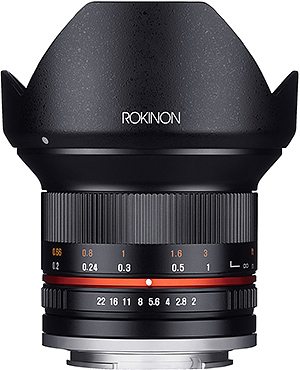
However, if you don't mind a non-Fujifilm lens and are okay with manual focus-only, one of the most enticing options for an astrophotography lens is the $330 Rokinon 12mm f/2 prime. Offering a super-wide 18mm-eq. focal length and a bright f/2 aperture, the Rokinon 12mm f/2 is a no-brainer for astrophotographers. We have not had the chance to review this particular Rokinon lens ourselves, but owners and other user reviews praise the lens's sharpness. Image quality excellent across the aperture range, making it excellent for all sorts of wide-angle photography pursuits. In particular, coma, even at f/2, is essentially a non-issue. All in all, this tiny manual focus lens an amazing value and an excellent lens for an astrophotography setup on a budget.
Upgrade Pick: Fuji XF 8-16mm f/2.8 R LM WR
For our upgrade pick here, we have to once again select the excellent Fuji XF 8-16mm f/2.8. Extremely sharp and very versatile with a range of astrophotography-friendly focal lengths plus a bright f/2.8 aperture all combine to make this high-end lens an excellent pick for night-sky photography. As mentioned earlier, the image quality is outstanding, and the lens does a very good job at suppressing comatic aberration. A bit pricey and a bit heavy, but the XF 8-16mm f/2.8 is an all-around fantastic ultra-wide zoom lens that's a solid choice for landscapes, both during the day and at night.
Try It Before You Buy It? -- Rent this lens from Lensrentals
• • •
Curious about more lens recommendations for other brands and camera platforms? See our other articles:
• The Best Lenses for Your Sony Mirrorless Camera •
• 8 best lenses for your new Canon DSLR •
• 11 best lenses for your new Nikon DSLR •
• The best Olympus lenses for pretty much everything •
• The Best Portrait Lenses for Every Camera Brand •
• • •
